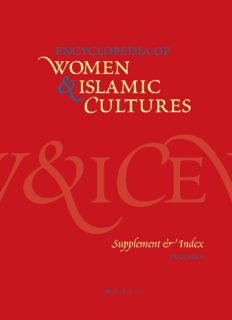of the motherhood state. Modelon Djajadiningrat
(1987) argues that “ibu or mother is a concept of
ideology which sanctions any action provided it is
taken as a mother who is looking after her family,
a group, a class, a company or the state without
demanding power or prestige in return.”
The public role of woman was based on the domes-
tic role, since women’s functions were simplified to
being mothers and wives. The state erected barriers
to prevent women from demonstrating their abili-
ties in the public political space. The new political
climate put an end to women’s movements, and
only allowed “motherhood” organizations such as
Dharma Wanita, the PKK (Family Welfare Move-
ment), and other similar woman’s organizations,
which were associated together under Kowani
and which sustained Kowani. Kowani consisted of
independent organizations such as Perwari (Persat-
uan Wanita Indonesia, Organization of Indonesian
Women), Aisyiyah, and Wanita Katholik (Catho-
lic Women), and organizations of the wives of
Indonesian civil servants or military such as PKK,
Dharma Wanita, and others. Inevitably, Kowani
became politically and economically dependent on
the government; the government provided support
to Kowani in the form of transportation, office,
finance, and so forth. In short, the government
more or less occupied and controlled this orga-
nization. Woman’s organizations no longer had
freedom to organize at the grassroots level, except
for socio-religious or charitable activities. Only
organizations such Aisyiyah, PKK, and Dharma
Wanita were permitted to be active at the village
level (Wieringa 1995
download book
(1987) argues that “ibu or mother is a concept of
ideology which sanctions any action provided it is
taken as a mother who is looking after her family,
a group, a class, a company or the state without
demanding power or prestige in return.”
The public role of woman was based on the domes-
tic role, since women’s functions were simplified to
being mothers and wives. The state erected barriers
to prevent women from demonstrating their abili-
ties in the public political space. The new political
climate put an end to women’s movements, and
only allowed “motherhood” organizations such as
Dharma Wanita, the PKK (Family Welfare Move-
ment), and other similar woman’s organizations,
which were associated together under Kowani
and which sustained Kowani. Kowani consisted of
independent organizations such as Perwari (Persat-
uan Wanita Indonesia, Organization of Indonesian
Women), Aisyiyah, and Wanita Katholik (Catho-
lic Women), and organizations of the wives of
Indonesian civil servants or military such as PKK,
Dharma Wanita, and others. Inevitably, Kowani
became politically and economically dependent on
the government; the government provided support
to Kowani in the form of transportation, office,
finance, and so forth. In short, the government
more or less occupied and controlled this orga-
nization. Woman’s organizations no longer had
freedom to organize at the grassroots level, except
for socio-religious or charitable activities. Only
organizations such Aisyiyah, PKK, and Dharma
Wanita were permitted to be active at the village
level (Wieringa 1995
download book






No comments:
Post a Comment